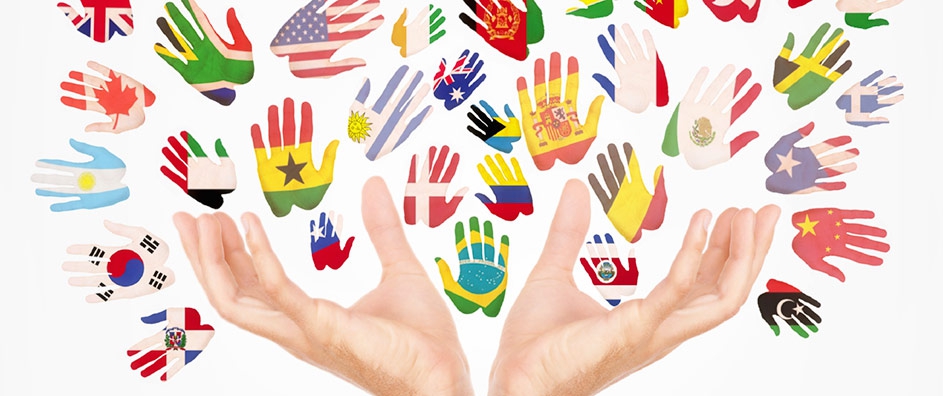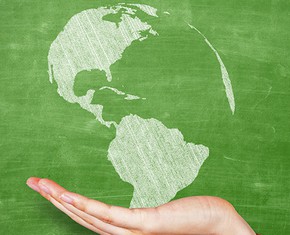The views expressed in our content reflect individual perspectives and do not represent the authoritative views of the Baha'i Faith.
In thinking about religion and society in the 21st century, we should broaden the conversation about faith from doctrinal debates to the larger question of how it might inspire us to strengthen the bonds of belonging that redeem us from our solitude, helping us to construct together a gracious and generous social order. – Jonathan Sacks
If the members of a family are perfectly united it will add to their comfort and joy. If the people of a city are inspired with civic unity the whole community will advance. If the inhabitants of a great continent become one spirit in different bodies marvelous progress will be made and if the people of the entire globe are welded into one great commonwealth the prayer, “Thy kingdom come, Thy will be done on earth as in heaven,” will be a reality for each will have the kingdom within himself. – Abdu’l-Baha, Divine Philosophy, p. 183.
Every one of us lives within a context; a culture; a society; a social order. Unless you’re a hermit who renounces all human contact, you have two complementary roles in life: as an individual; and as a member of a larger community.
Of course, we can’t separate those roles from each other. Our individual identities always develop in the context of our culture. Our social relations with others form our notions and visions of ourselves. None of us grows and matures in a vacuum—instead, we’re all the products of our environment.
So what defines a good community, a good society? In an ideal world, what kind of society would you like to live and raise your children in? Many modern thinkers, especially those from the developed world, would argue that the best human societies are liberal democracies, hyper-individualized sovereign national cultures that place a high premium on freedom, liberty and personal rights.
If you review the history of human society and its development, you can see why people might reach that conclusion. The classical liberalism of the Enlightenment—when cultural and intellectual forces in Western Europe began to emphasize science, democratic rule, reason, and individualism, rather than traditional authority from tyrannical dictators, kings or the church—developed as a reaction to thousands of years of repressive governments, dogmatic belief systems and rigidly-defined social structures. During the period of the Enlightenment, authoritarian rule and an inflexible class system gradually gave way to liberal, democratic societies in many nations, and their influence began to spread around the world. That influential multi-century trend still plays itself out today among oppressive cultures whose people continue to demand freedom and justice.
Along with its benefits of greater individual freedom, though, the world has paid a high price for that massive social change. The rigid system of competing national sovereignties developed during the Enlightenment also created global divisions and rivalries that led to massive and nearly constant warfare, harsh economic exploitation and a vast, widening gulf between the wealthiest and the poorest. Those new societies also resulted in a breakdown of social bonds between the individual and the community, widespread alienation from any universally-held value system, and a growing sense of estrangement, anomie and social isolation.
So do liberal, free market national democracies make the best possible cultures? Does the community of nations, and the anarchy inherent in our current system of state sovereignty, prevent us from having a peaceful global community? Does the world face a future where sovereign nations inevitably and forever exist in conflict with other nations? Or does a vision exist somewhere for a broader, less selfish, more advanced, more universal, more humane society—for a new world order?
The Baha’i teachings answer those questions frankly, directly and with great optimism:
The world’s equilibrium hath been upset through the vibrating influence of this most great, this new World Order. Mankind’s ordered life hath been revolutionized through the agency of this unique, this wondrous System — the like of which mortal eyes have never witnessed. – Baha’u’llah, Gleanings from the Writings of Baha’u’llah, p. 136.
The essence of Baha’u’llah’s World Order is the unity of the human race. ’O ye children of men’, He writes, ’the fundamental purpose animating the Faith of God and His Religion is to safeguard the interests and promote the unity of the human race…’ And He warns, ’The well-being of mankind, its peace and security, are unattainable unless and until its unity is firmly established.’ The achievement of this unity is Baha’u’llah’s declared mission and the aim of all Baha’i activity. – The Universal House of Justice, The Proclamation of Baha’u’llah, p. ix.
The Baha’i teachings, then, don’t just focus solely on the inner life of humanity, in the way that some traditional religions often do. They also focus, sharply and clearly, on our outer community life—on the future of our society and culture as a whole. Baha’is believe that we have reached a stage in human history which demands and requires global unity; that the era of nation-building has come to its natural end; and that the period in human history which will usher in a new world order has begun:
The long ages of infancy and childhood, through which the human race had to pass, have receded into the background. Humanity is now experiencing the commotions invariably associated with the most turbulent stage of its evolution, the stage of adolescence, when the impetuosity of youth and its vehemence reach their climax, and must gradually be superseded by the calmness, the wisdom, and the maturity that characterize the stage of manhood. Then will the human race reach that stature of ripeness which will enable it to acquire all the powers and capacities upon which its ultimate development must depend.
Unification of the whole of mankind is the hall mark of the stage which human society is now approaching. Unity of family, of tribe, of city-state, and nation have been successively attempted and fully established. World unity is the goal towards which a harassed humanity is striving. Nation-building has come to an end. The anarchy inherent in state sovereignty is moving towards a climax. A world, growing to maturity, must abandon this fetish, recognize the oneness and wholeness of human relationships, and establish once for all the machinery that can best incarnate this fundamental principle of its life. – Shoghi Effendi, The World Order of Baha’u’llah, pp. 202-203.
This Baha’i call—to “recognize the oneness and wholeness of human relationships”—asks us to bring into being a new world community which no longer recognizes the old divisions of race, gender, nationality or class. It asks us to extend that community around the globe. It asks us to create a social system that values the rights and privileges of every individual. It asks all of humanity to cease its conflicts, wars and violence. It asks us all to become citizens of the world.
















Comments
Sign in or create an account
Continue with Googleor